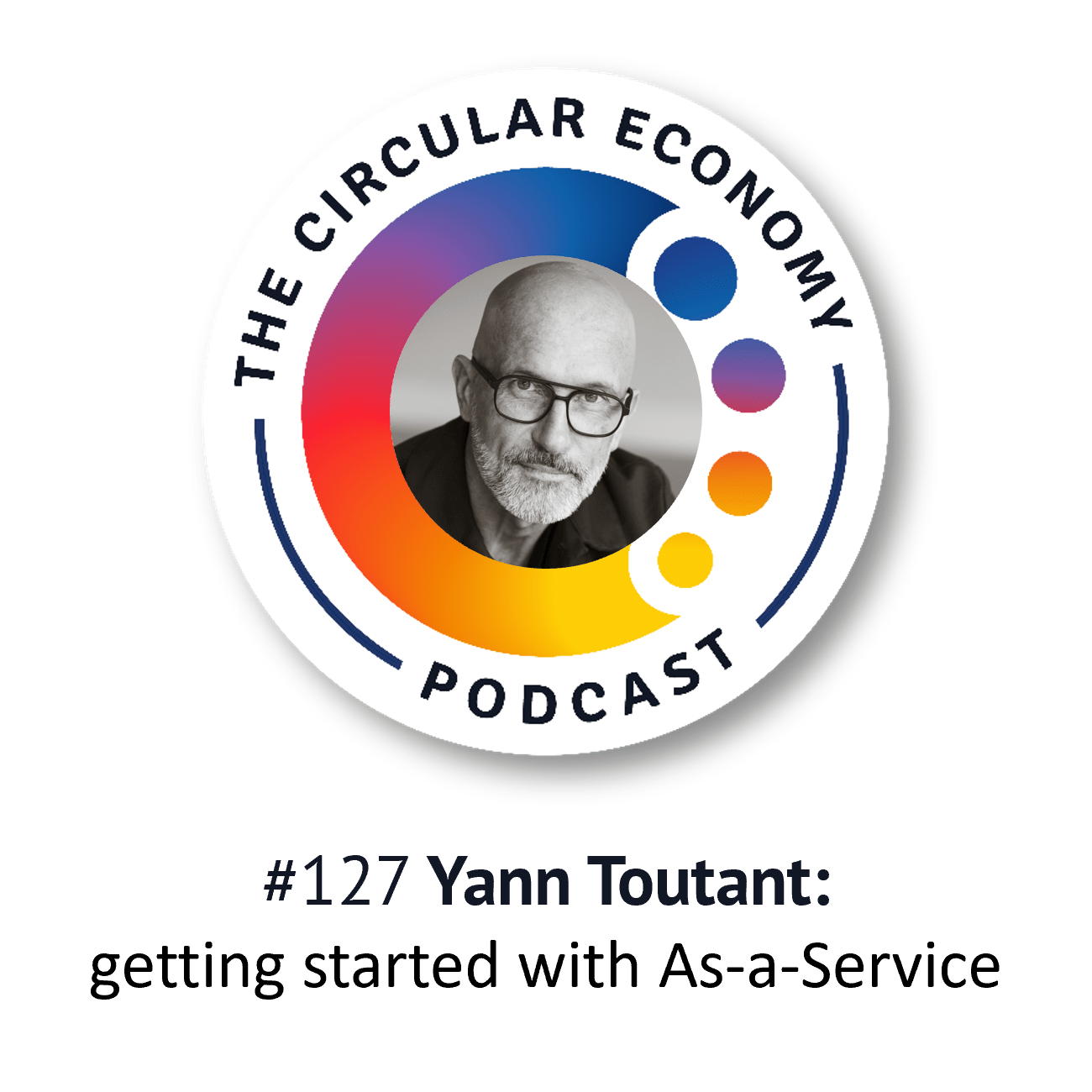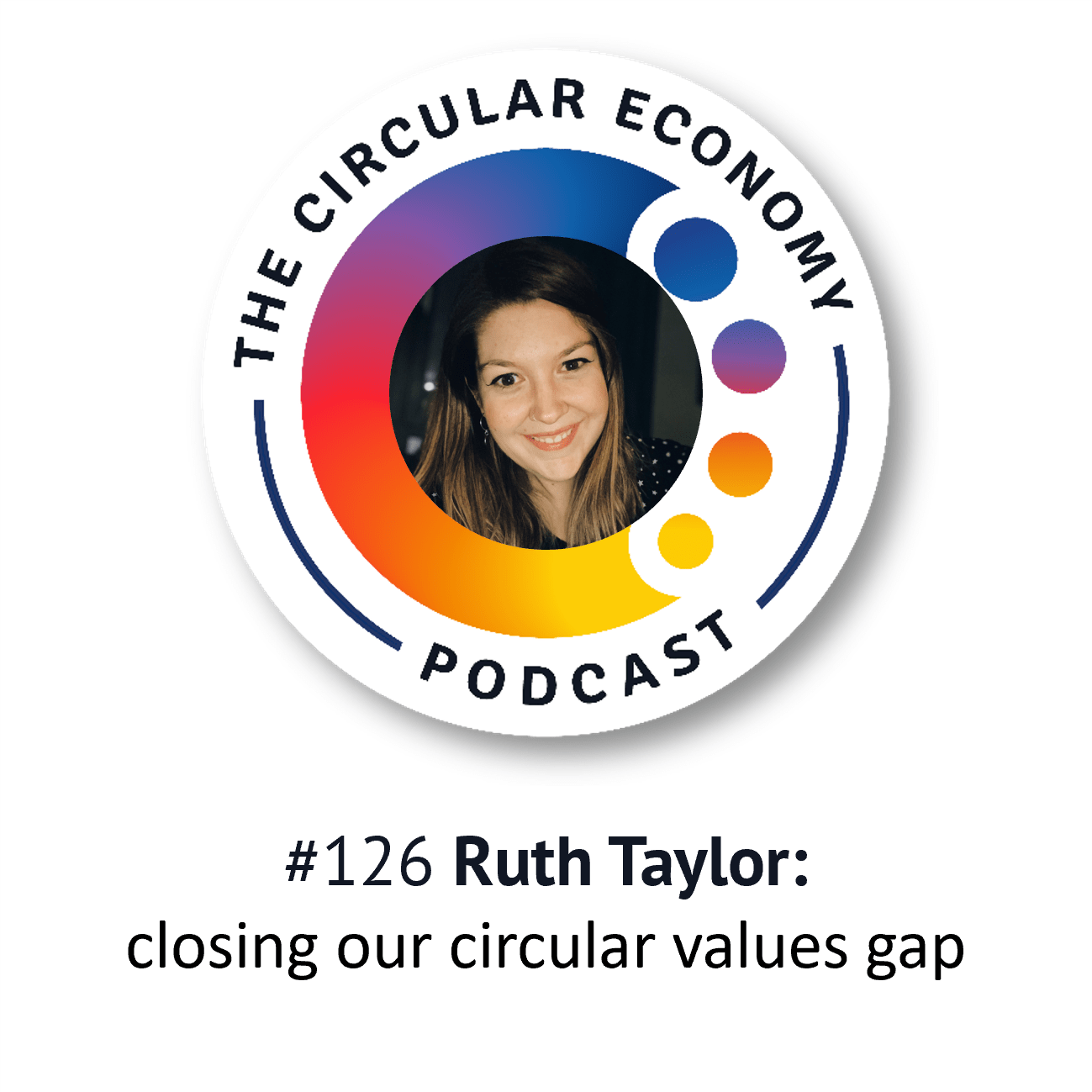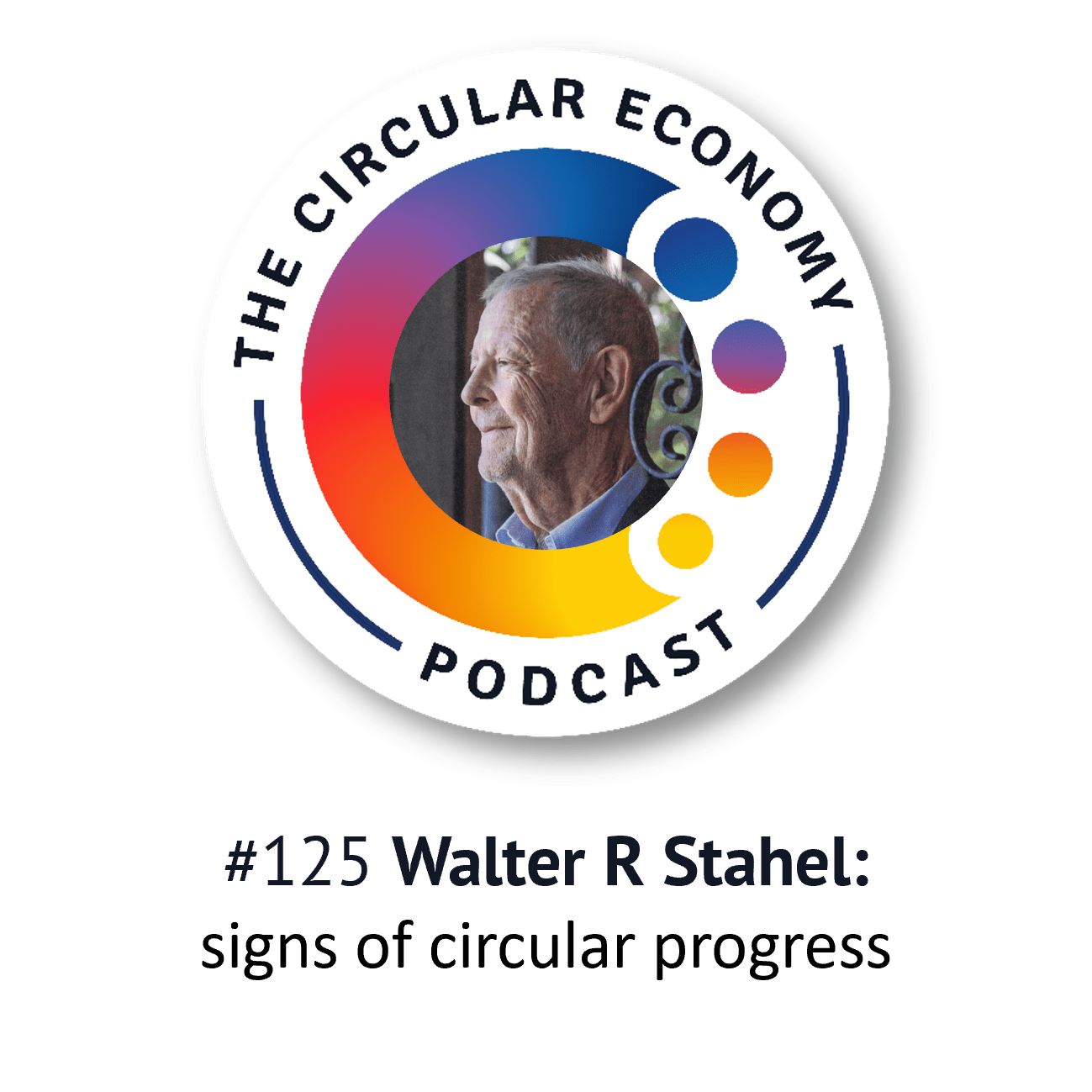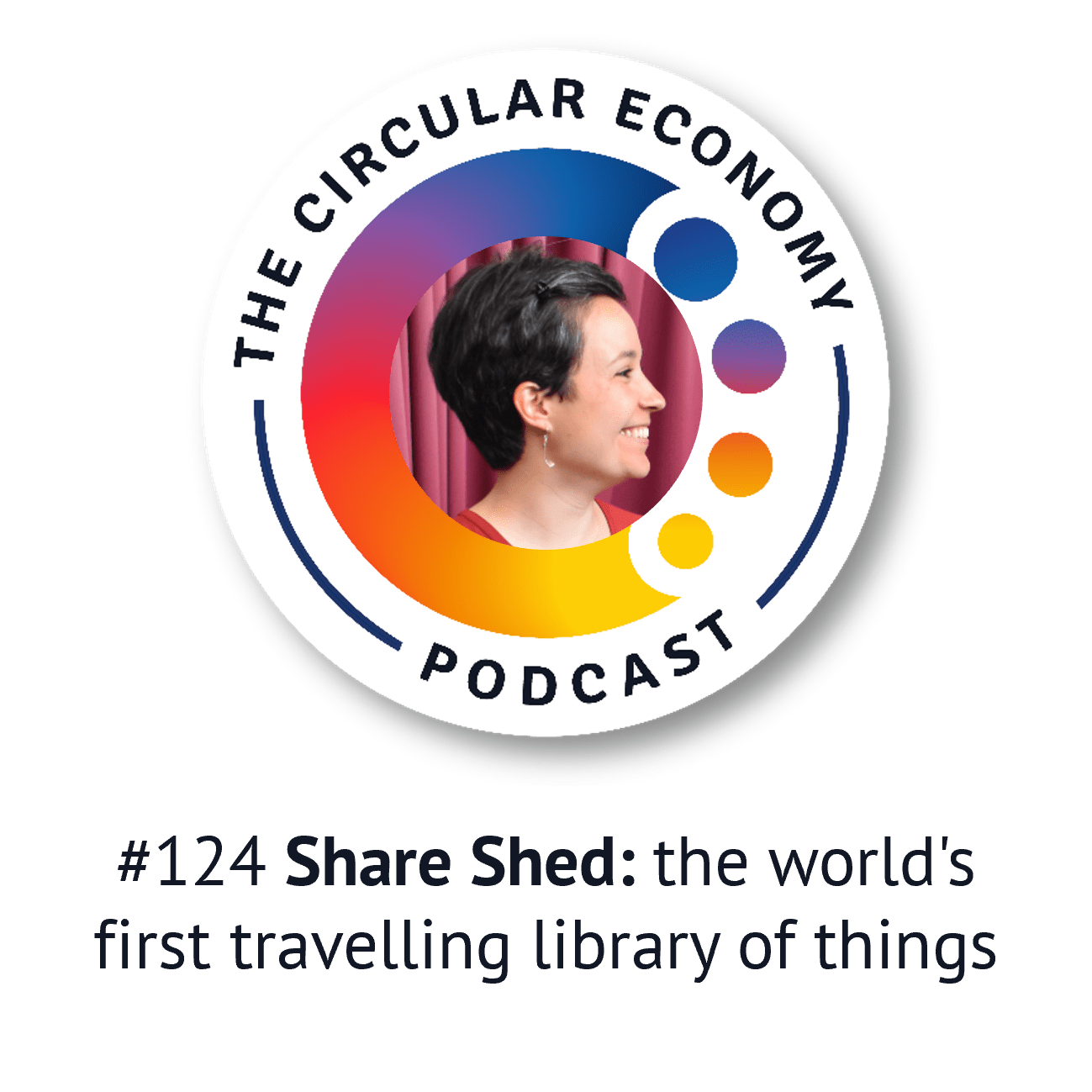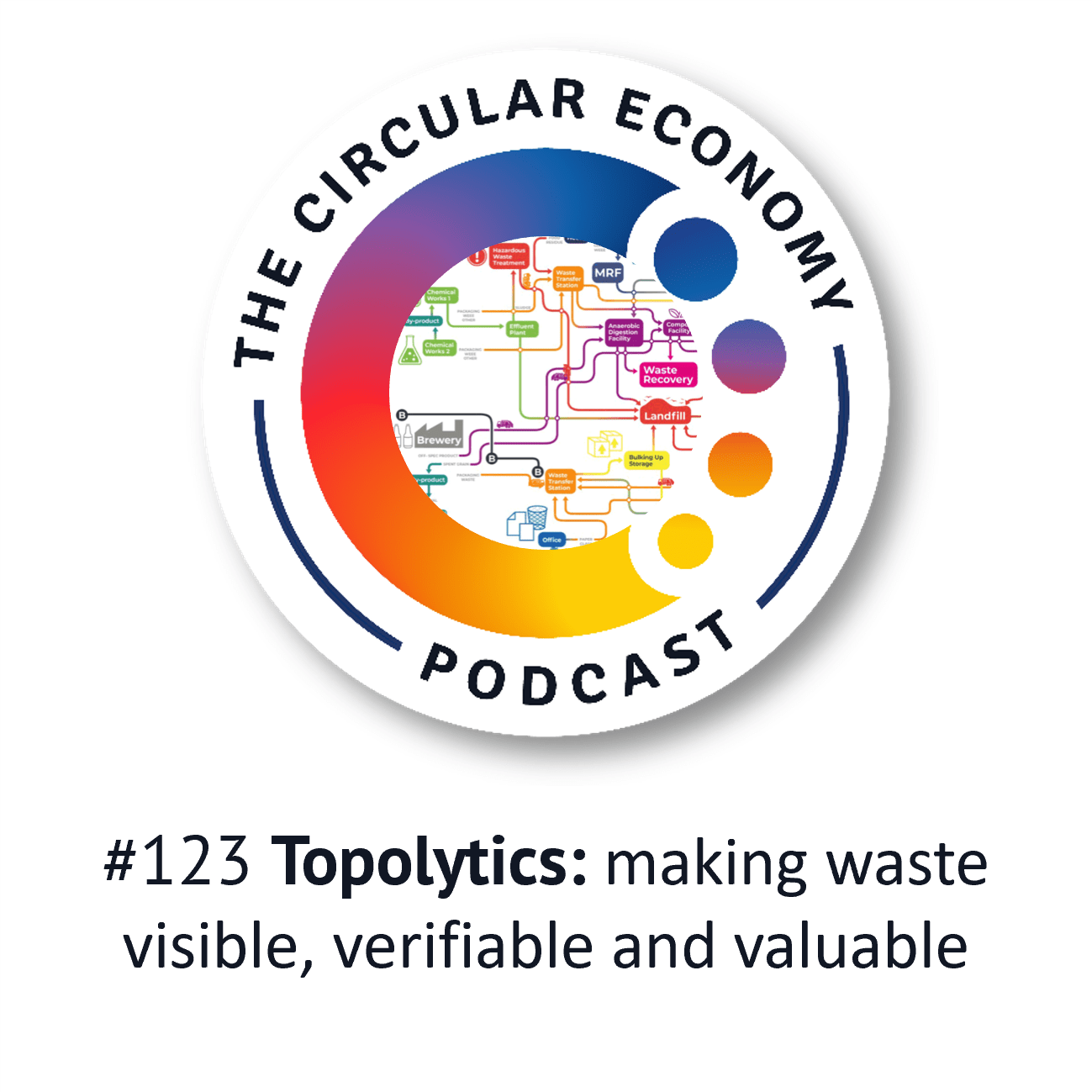Podcast: Play in new window | Download
Catherine Weetman talks to Rob Thompson from Plymouth in the south-west of England, who is an Multi-award winning Innovator, a Marine Conservationist, a Marine Litter Recycling Specialist, and a Social Entrepreneur.
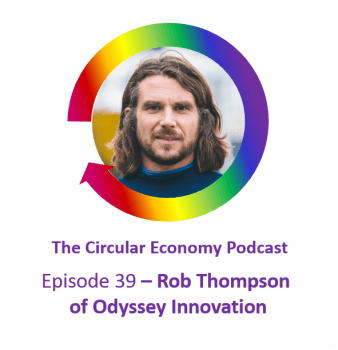 Rob realised the critical and increasing problem of plastic pollution in the oceans, and started doing clean-ups in his kayak. During these clean-ups, he realised there were three recurring obstacles:
Rob realised the critical and increasing problem of plastic pollution in the oceans, and started doing clean-ups in his kayak. During these clean-ups, he realised there were three recurring obstacles:
- How to access the inaccessible coves, estuaries and other areas not frequented by the regular beach cleaners;
- How to dispose of the plastic we generated through our clean-up operations;
- How to fund the running costs of doing this.
Rob came up with a way of combining the elements of all three problems with circular economy principles, and launched Odyssey Innovation to recycle marine plastic into kayaks and other products.
We hear about Rob’s progress in making all those connections and setting up collaboration opportunities with recycling companies, the local government and its recycling teams, with the fishing industry, and organizations like the Ocean Recovery Project and the Paddle for Plastic campaign. Odyssey Innovation is now working with quite a few harbours around the south-west, and as Rob said, they’d like to expand to other areas of the UK.
Rob has created a brilliant circular model (using plastic waste to help collect more plastic waste!) and found ways to tap into or set up viable recycling routes for many of the wide range of plastics getting into the oceans.
Podcast host Catherine Weetman is a circular economy business advisor, workshop facilitator, speaker and writer. Her award-winning book, includes lots of practical examples and tips on getting started. Catherine founded Rethink Global in 2013, to help businesses use circular, sustainable approaches to build a better business (and a better world).
Stay in touch for free insights and updates…
Read on for a summary of the podcast and links to the people, organisations and other resources we mention.
You can subscribe to the podcast series on iTunes, Google Podcasts, PlayerFM, Spotify, TuneIn, or search for “circular economy” in your favourite podcast app. Stay in touch to get free insights and updates, direct to your inbox…
Links we mention in the episode:
- A CIRCULAR ECONOMY HANDBOOK: HOW TO BUILD A MORE RESILIENT, COMPETITIVE AND SUSTAINABLE BUSINESS. The second edition of Catherine Weetman’s book will be published by Kogan Page in November 2020 https://www.koganpage.com/product/a-circular-economy-handbook-9781789665314
- Rob Thompson on LinkedIn https://www.linkedin.com/in/rob-thompson-3a098184/
- Odyssey Innovation website https://www.odysseyinnovation.com/
- @odysseyinnovation on Facebook, Instagram and Twitter
- BBC Radio 4 Costing the Earth, September 2019 – Ghost Fishing – ‘Ghost Fishing’ refers to the nets and lines left in the ocean by fishermen which continue to catch and kill sealife. Lucy Siegle finds out why this plastic waste is a big problem. https://www.bbc.co.uk/programmes/m0008nwr
About Rob Thompson
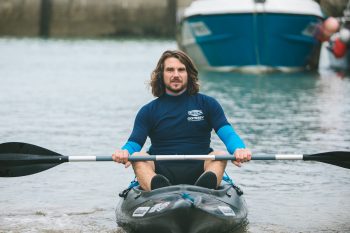 Rob Thompson says: “I’ve always been passionate about making a difference in the world. The problem of plastic pollution in the ocean is a critical one so I started doing clean ups by kayak.
Rob Thompson says: “I’ve always been passionate about making a difference in the world. The problem of plastic pollution in the ocean is a critical one so I started doing clean ups by kayak.
It was during these clean ups that I realised that there were three recurring obstacles I encountered.
- How to access the inaccessible coves, estuaries and other areas not frequented by the regular beach cleaners;
- How to dispose of the plastic we generated through our clean-up operations;
- How to fund the running costs of doing this.
I had the idea of combining the elements of all three problems and by using the concept using circular economy and Odyssey Innovation was born to recycle marine plastic into kayaks and other products.
We now collaborate with the Ocean Recovery Project, charities, NGOs, government bodies, the fishing industry, recyclers, manufacturers, Innovators and businesses, in order to find long-term sustainable solutions to tackle marine plastic pollution by incorporating the circular economy into our operations.
Transcript
Please add 2:23 to timings for the finished episode
Catherine Weetman 00:04
Today we’re talking to Rob Thompson from Plymouth in the southwest of England, who is a multi award-winning innovator, and marine conservationist, a marine litter recycling specialist and a social entrepreneur. Rob realised the critical and increasing problem of plastic pollution in the oceans and started doing cleanups in his kayak. During these cleanups, he realised there were three recurring obstacles. Firstly, how to access the inaccessible coves, estuaries and other areas that regular beach cleaners couldn’t get to. Secondly, how to dispose of all the plastic that we’re generating and being collected through those cleanup operations. And thirdly, how to fund the running costs of doing all of that. Rob came up with a way of combining the elements of all three problems with circular economy principles and launched Odyssey Innovations to recycle marine plastics into kayaks and other products. Rob, welcome to the circular economy podcast.
Rob Thompson 01:04
Thank you. It’s good to be here.
Catherine Weetman 01:05
Yeah, it’s good. Good to talk to you today. So I first heard about you and Odyssey Innovations on BBC Radio 4’s Costing the Earth programme about a year ago. And that was an episode looking into all the problems of ocean plastics. And having started this plastic collection and recycling business back in 2014, you probably got pretty good at all the practicalities now. So tell us about how it how it works. How do you go out and collect plastics and what kind of plastics you’re picking up and so on.
Rob Thompson 01:39
Okay. But to be honest with you, this sort of practical on the ground element has been very much trial and error to bear to find systems at work. We’ve been nice five years, building a sort of network of stakeholders that will enable us to bear to do that. That we recognise the need for that those are the conservationists out there like myself that were unhappy with Collecting material and then black-bagging it and not knowing where it was going. That wanted to recycle. And we were doing what we could do in our own small way we were taking out that obviously recyclable things like cans and glass bottles, etc and put them through a house or recycling. But we want it to get viable streams up and running to try and recycle everything that we could. The basic underlying principle I had at the time is quite naive conceptually, but it was one based around the value of the material. Based in Cornwall base in the southwest, we’ve got a long history of ship-wrecking and spills and container’s washing up on the beaches. And if there was a commodity washing on the beaches, it wouldn’t be an issue. People were down on the shoreline taking it away, valorising it and I wanted to try and use that concept again with marine plastic You know, it does have a value per ton. The plastic material we’re finding on the beaches can be as valuable as scrap metal, and if it was scrap metal that wouldn’t be an issue. So the only real difference was for something like scrap metal, there’s infrastructure in place, you can take it to scrap metal merchants you can recycle it to your everyday person on the street could do that. And the situation we’re in with marine plastics is it’s everyday people like myself out on the beaches, doing the cleanups with nowhere to take this material. So we started building a network with all the different beach clean groups and charities and now we work with over a dozen different charities between groups to recover and recycle the plastic they’re getting through. And a really valuable contribution as well has been the fishing communities. Now they’re involved in various schemes where they’ll go out and buy trawler plastic and other people’s lost nets etc. They bring them in for recycling with us we offer a free recycling service. And a large part of our material now also comes from the end of life nets from the fishing industry, which was a material that wasn’t being captured before it was at best being sent to landfill, and the fishing community were paying the landfill charge to do that, so it was a real obstacle. So we ended up setting up a free net recycling scheme for them to act as a preventative measure if you like. So they’ve got alternatives to landfill and they can avoid those landfill charges. So through doing that, that also increased our volumes. So no, for going for like an individual trying to recycle a small amount of plastic. Once you’ve suddenly got all these other stakeholders on board, we’re starting to work towards volumes, which are viable for recycling. We can start then getting them to recycling streams, which is what we want.
Catherine Weetman 04:34
Brilliant. And for somebody who doesn’t know much about marine plastics and so on. Things like fishing nets, are they all made a similar material? Can you put them all in one recycling stream or is it more complicated and you had to do some sorting?
Rob Thompson 04:51
Yeah, it is more complicated, unfortunately. And it is still an ongoing process and we’re involved in some other initiatives where they’re looking at ways of redesigning fishing gear to make it simpler is end of life to take apart and to actually get into viable recycling streams, because there is a labour element involved in that. And in general, the majority of the material seems to be polypropylene or polyethylene or nylon in various proportions. So, quite often we do there is some pretreatment at the harbours where they will segregate the materials the best they can, and then move forward them on for processing. There’s also further sort of process of breaking down more of those materials. And we’re doing a joint project now with putting this university where we start to look at materials we’re not currently capturing, imagine to put into recycling stream and like brown rubbers from some of the trawl nets, like some of the fish floats and boys, or some of the typhoon wires, which are why which has this sort of nylon core. So you’ve got some composite materials. So we’re looking at how we can start sort of trying to get those into recycling routes as well. So it is this sort of ever-evolving, ongoing process. Trying to sort of constantly improve and constantly trying to valorize as much of that material as possible.
Catherine Weetman 06:05
yeah, that sounds sensible. So these days you mainly focusing on waste from the fishing industry, or are you still collecting things like plastic bags and toys and that kind of stuff?
Rob Thompson 06:19
Yeah, at the moment we’re taking everything so we’re getting a huge amount of material through some beach cleaning groups. We have two different recyclers. We’ve got extra city council who will take anything that can be recycled in the UK. So it’s basically all the rigid plastics or the commonly found things you’ll find on the beach cleans. From there, it gets processed and forwarded on to other processes. When it comes to things like the fishing nets, ropes, etc, that’s more challenging when it comes to actually processing and we don’t have any facilities in the UK capable of that currently so that all that material is forwarded on to a company called Plastix in Denmark. So I work as a sort of UK representative to coordinate collections of that material. And then from both of those sources, depending on what uses we have, we can potentially buy back the material we need to go into various products. We’re working on it.
Catherine Weetman 07:13
Yeah, brilliant. So it sounds as if you set up an extensive operation there with various partners and their levels of expertise and so on. And what about making the products? How did you how did you get started on that? Because it wasn’t just about finding ways to sell the recyclate, it was it is turning it into products that people could buy and kind of tell a different story about
Rob Thompson 07:39
Yeah, definitely. So originally, I was trying to find some way to get material into the recycling streams. And I’d heard about the circular economy. I loved the idea of it because we need to be working with industry to solve the marine plastic crisis. We know from all the Beach cleans we’ve been doing that we’re very familiar with various brands, we see we’re carrying on the beach cleans that actually, we can complain to people for littering, or problems with waste infrastructure of stuff getting into the sea. But the end of day it all originates from somewhere. And that is industry. So, again, industry involved from the outset, I think is absolutely key. And there’s various initiatives now to try and encourage them to become more involved things like extended producer responsibility schemes, etc. And so for us, the idea of how to do some moves could be a showcase of a circular economy model. So I really like the idea of not trying to do something small scale to begin with, I thought, I want to try and come up with a product which can showcase before circularity and prove that it could work and I rattled around numerous ideas related to the marine industry. So like the idea of trying to capture people’s imagination when it comes to this approve, it’s a valuable resource. So I was thinking the usual things you’d associate with the beach as looking buckets, spades, frisbees, those kind of things. And I didn’t see any of them because we find those regularly on our beach cleans. And it got me thinking along the lines of
Catherine Weetman 09:03
that you were going to carry on being part of the problem. Yeah,
Rob Thompson 09:07
well, yeah, potentially, the last thing I want to do is develop something which then becomes marine litter! So it sort of got me thinking around that. If you’re going to go down the manufacturing route, you have to put a lot of thought into what you’re producing Is there a need for what you’re producing is there alternative ways of producing it? And something because logic isn’t likely to be discarded very haphazardly. So put it into larger products. And for me, the kayak is the ideal thing because it’s something that can be used for accessing or doing the beach cleans. That’s how the kayak idea came about really should have been rattling around various ideas to do the circular economy and we did a cleanup on kayaks not manufactured by myself and had the black bag photo at the end of the black bags next to the kayak that literally took that to make me tweak that. Potentially we could be making the kayaks out of this. I’m not coming from engineering background. So that’s, that’s probably saved me in a way. But how do I know the challenges or potentially be posed to such a simple concept? It might have been on the back burner for too long. And so I kind of went into quite optimistically, quite easily in many ways, and through quite a lot of trial and error, tried to find ways of getting it into a product which could be abused. And especially when I wrote with located in the southwest, the majority of our coastlines inaccessible by foot. We’re lucky that we’ve got a fantastic momentum of beach clean groups that are regularly cleaning up the beaches, which have good public access, but we’re finding if you only have to paddle a couple of hundred metres around the corner from those and you’re finding a legacy of decade’s worth of marine plastic washed up on the sort of inaccessible caves and rocks. So the idea of developing kayaks which could be used for at assessing those areas, I’d really like the idea there to do and so we ended up sort of looking into ways of potentially developing a kayak with the idea originally that I could do something small scale. It quickly turned into something that couldn’t be small scale unfortunately, it’s another thing with a circular economy it does take a lot of collaboration takes a lot of joined-up thinking you’re working on sort of scales economies went from the trying to recycle a little bit of beach litter into a couple of kayaks to set up recycling infrastructure on the whole, the Southwest, and now we’re trying to do as much we can nationwide, start looking at recycling plastics as well, because it’s saying we really could make things work to be honest. That’s how things have ended up kind of growing far beyond forwards, no ambitions were. Collaboration is key. We’ve got some very good partners on board. We work with a kayak manufacturer, he’s based up in Clevedon, called Islander Kayaks. They already had 40 years of experience in manufacturing moulded kayaks. I worked on the side with some other companies and processes to develop a mix that could work in that type of processing, which is roto moulding. And once we developed a suitable mix of plastic that at that point, I approached the manufacturer and said, Would you be interested in introducing this into some of your product lines. And that’s how we ended up sort of developing the products. And now we’re looking at several other products which would be interested more in-house.
Catherine Weetman 12:36
Yeah, I noticed on the website, there’s some outerwear and base layers and kind of rock shoes and things that you could use whilst kayaking. So it all kind of works together doesn’t it as a as a product range?
Rob Thompson 12:51
Yeah, those are things which, which you already have in stock with a kayak manufacturer But for us, personally, from the marine litter, we’re looking at developing things like surfing hand planes, like a miniature surfboard, if you like, which you use when you go body surfing. We’re currently in the process of developing those – we’ve managed to work with a company that makes large scale grit bins, which are also made out of the same material, which are now on several beaches around the Southwest where they’re going to be used for collecting the marine plastic go into them, and then we empty those out. So again, it’s a little bit sort of circular story there that we get in that the plastic collected in the actual containers that are made from plastic. And we’re working with a company who is currently developing water refill stations, for on beaches, which the plastic for the creation of the refill stations will also be made out of the materials coming through our scheme.
Catherine Weetman 13:48
That’s great. And are you finding this and you know, being able to tell this circular story, are you finding that’s helping spread the word and get people engaged?
Rob Thompson 13:59
Definitely it’s about capturing people’s imagination and putting things into context. It was a very large part of the learning curve for me been recycling for years, but it’s at the extent of putting things in the recycling. And then I might buy recycled product in the shop, but if you don’t get to see the bit in between, there’s very little sort of connection between the two. So if you can start making products that are relevant to the communities you’re trying to reach, I think it really helps sort of capture imaginations. We’re currently working on some products for the fishing industry as well in a similar way, some things that can actually be put back into use by themselves which will help sort of to drum home importance and the value of recycling as well with it.
Catherine Weetman 14:43
And from the perspective of the fishing industry and and the fishing crews, I guess, you’ve already talked about the the way that you’re able to offer them free recycling instead of them having to pay to take it to a landfill and so on. Are you finding that there’s also a level of engagement because they’re enjoying and and feeling motivated by doing the right thing and keeping that plastic out of landfill and out of the oceans? Is that a big part of, of the drivers for them?
Rob Thompson 15:18
Yeah, definitely. I’ve pleasantly surprised actually working with the fishing industry, just the amount of enthusiasm they have this to their attempts of being sustainable, really. So anything to do with this, they’ve been really keen on trying to support and trying to make it happen. And we’ve had some very good advocators from the fishing industry that have had a need for this for a long time have been looking for these kinds of projects, but it’s only come about really through the circular economy. Its current recycling models wouldn’t work their industry that simply isn’t found even that material to make a viable recycling business model of taking their material recycling it and making a profit only through using the circular economy. Filling in that gap that’s missed in the middle game, right, we’re going to jump straight beyond that making a profit bit in the middle and go straight to an end product and then try and feed that back into the system and work on a fully circular system that this can actually work in. There simply isn’t enough profitability in there to run a recycling scheme just on the back of recycled material. It’s too much of a loss for most recyclers to take on board. And that was quite a big surprise to me when I started working with the fishing community. I mean, to me there should have been recycling facilities in harbours for the last 30 years and there wasn’t. It was quite a surprise actually to find that everyone we approached, were keen on making this happen. And nothing had been happening before.
Catherine Weetman 16:45
And I guess that thing of, you know, the people involved in the industry being able to tell them a more interesting story. It’s not just that they’re now putting those fishing nets into a recycling stream, is that they’re being used to make kayaks and kayak gear and, you know, plastic collection bins and all that sort of stuff so that that’s a more interesting and kind of engaging story to be able to tap into and to make you feel motivated to put the extra bit of effort into getting that stuff back into a recycling stream.
Rob Thompson 17:19
Yeah, definitely. It’s just showcasing that the material does have actually does have a value, which I think is key. Just physically showing people like ‘it’s valuable’ it’s a valuable commodity that’s come out of it that can be used. It has been a valuable part of the story.
Catherine Weetman 17:34
Yeah, brilliant. And so looking back on those six years, if you had to share one of your top lessons learned, for anybody else wanting to take their business more circular. What would that be? What would your top tip be?
Rob Thompson 17:51
Try being small, and don’t be over-ambitious, which is what that’s why it’s taken me six years to get this far. I really struggled to begin with to find any comparable models. It was a field which is very new the circular economy, especially several years ago. So it was a lot of trial and error. And I’ve set up a business to be a business working in the circular economy field as opposed to already being an established business. If you’re already an established business, especially with all the global challenges there at the moment, they’ve got a lot of very pressing concerns, and they don’t necessarily have the resources that I’ve been able to have time-wise to be able to develop all the things I’ve had to develop – all these various elements of supply-chain. So I was listening to this thinking. It’s an incredibly complex beast because by itself Personally, I’m involved in every element from recovery to logistics, collections, processing, recycling, and product retail. You don’t have to be involved in all of that. Even if your business going to take one element and actually go we can accommodate that. And look at how you can collaborate to incorporate other elements because there’s lots of them. People out there now wanting to work in quite fledgling field that could do with support as well and be also be looking for like collaborations, then we need a lot more sort of joined up thinking to make this work. So don’t be overwhelmed and don’t try and recreate the wheel necessarily! Try and find who else you can collaborate with and try and focus on an element which you think you can impact.
Catherine Weetman 19:22
Yeah, I think that’s that’s really sound advice. And often the circular economy is either misconstrued as being just about more recycling, or people think you’ve got to completely close the loop and that does seem overwhelming. And when I talk to people who I’m coaching and mentoring, I always talk about you know, looking at the risks in your business and thinking about, you know, what could what one thing could you do that’s a bit more circular. And just start with that start with something that’s quite low risk, and use that to learn some lessons and then move on to the next thing and the next thing and make it an iterative process. Brilliant. So What about your plans for the next phase of the business? What’s next for Rob?
Rob Thompson 20:07
Well, it’s looking at the most valuable parts of the business, to be honest. And for me coming from the conservation background, the most valuable thing we’re doing is supporting the communities on the ground when it comes to having infrastructure in place for recycling, and recovery. So it’d be expanding things like the Paddle for Plastic campaign where we support community groups and going out there and recovering marine plastic on the kayaks. So like to more on sort of expanding the campaign side of things. I think that’s really valuable. And also looking at expanding the recycling infrastructure in the harbours. We do a lot in the southwest we’re working with most harbours, here. We’re working with it, and several harbours throughout the south coast of the UK now to Ramsgate. But I’m contacted by harbours nationally really wanting to be involved in the scheme after hearing about it. And so I’m currently trying to find support To help sort of expand into those regions, to be able to start recycling from other areas as well, because I’ve seen the value from a preventative point of view when it comes to that. So I think it’s, it’s something which the fishing community are ready for, they’re very receptive towards, they want to be involved in so you’ve got the interest there, which is one of the most valuable things you can have. And we’re just looking for some support now basically, to try and start building destruction other areas and use that as a sort of showcase of best practices for the fishing industry.
Catherine Weetman 21:29
And I guess this model could apply to lots of other countries as well can that you know, whilst we’ve got an awful lot of coastline compared to our land surface area, there are lots of other countries that have a substantial fishing industry and could use this model as well.
Rob Thompson 21:47
Yeah, I think so. I mean, that’s been part of it as well is trying to sort of go through trial and error trying to refine the systems were put in place when it comes to logistics and collections and sorting, etc. and trying to keep costs down as well, in many ways – basically, because it’s been most of it, especially originally was self-financed. So it’s taken some big borrowing it sometimes. So through necessity, the running costs have been kept low. So we’ve actually, in the long run, that helps us build a very reputable model when it comes to trying to replicate our schemes in other regions. So we’ll certainly be looking at sort of trying to roll out recycling schemes and other areas and looking for potential partners that might be interested or people that are interested in running schemes in their regions to that might like to work with us. And then on the innovation side of things, it’s something I’m always have pondering on the ways to go ahead for various ideas and inventions going on. So that will be something that’s always on but tinkering on the background as well looking at various different products and start getting the material back into and for me, it’s always things that are relevant to that sector. So the kayaks for recovering from coves, the handplane for the surfing community and trying to make something for the fishing industry, etc, and trying to sort of keep making things that are in context and help really sort of showcase that circularity.
Catherine Weetman 23:10
Yeah. And as as we said, it kind of helps tell the story for the people involved in giving the plastic back as well, doesn’t it? Yeah, yeah. Fantastic. So Rob, who would you recommend as a future guest for the programme to inspire people about the circular economy?
Rob Thompson 23:26
Well, a friend of mine and one of our, one of the processes of the plastic we use a chap called Matt Hulland from Exeter Council. He runs the MRF plant up there. So he’d been working with us from the outset and looking at how to get more bespoke recycling streams like the marine litter into standard recycling streams. So looking at how you can sort of start adding value to this material, start getting it into standard stream, start working with bigger industries and start building a viable business model. So I think it’d be a really good guide to careers. He’s very knowledgeable and he’s got his finger on the pulse that comes with what’s happening, sort of national strategies for recycling, etc. and the various challenges of that, you know, with fluctuating values of materials and other obstacles that come along the way so I think it could be quite interesting chap to talk to
Catherine Weetman 24:20
Yeah, that sounds interesting. And I think over the last year or so with, first of all, China deciding it wasn’t going to process what was you know, labelled as waste plastic but can be waste all sorts of stuff. There are now concerns about you know, lack of regulation and so on with lots of other countries in the global south, and will they end up being deluged with waste materials from better-off countries, and from a circular economy point of view? Why don’t we just develop our own, you know, recycling infrastructure and keep the materials in circulation here, it doesn’t seem to make sense to offshore problem to somewhere that doesn’t have the, you know, easy access to infrastructure and so on to do it safely and, and properly. So yeah, that’s that sounds like a good recommendation. And Robin, what if people want to find out more about you and Odyssey innovations? How did they get in touch?
Rob Thompson 25:20
And through the website, so we’ve got a website, www dot Odyssey Innovation.com. We’ve also got a Facebook page, Instagram and Twitter. So then we like to keep up to date with what we do, and or they’re interested in any of our campaigns, like the Paddle for Plastic campaign, we have a separate page for that on Facebook and Instagram, which is basically just about encouraging people to go out and collect marine litter from otherwise inaccessible places. Yeah, if anyone is interested, please get in touch.
Catherine Weetman 25:51
Brilliant, and we’ll put those links in the show notes at circular economy podcast.com so that people can get in touch and find out more about Odyssey Innovation and Paddle for Plastics campaign. Rob, thanks very much for talking to us today. That’s a really interesting story. And it’s great to see how much you’ve moved things on from those original ideas and wrestling with the three intractable problems and finding a really good circular solution. Thank you very much.
Rob Thompson 26:16
No, thank you.
Want to find out more about the circular economy?
If you’d like to learn more about the circular economy and how it could help your business, why not listen to Episode 1, or read our guide: What is the Circular Economy?
To go deeper, you could buy Catherine’s book, A Circular Economy Handbook for Business and Supply Chains This comprehensive guide uses a bottom-up, practical approach. It includes lots of real examples from around the world, to help you really ‘get’ the circular economy. Even better, you’ll be inspired with ideas to make your own business more competitive, resilient and sustainable.
Please let us know what you think of the podcast – and we’d love it if you could leave us a review on iTunes, or wherever you find your podcasts. Or send us a Tweet: @Rethink _Global.
Podcast music
Thanks to Belinda O’Hooley and Heidi Tidow, otherwise known as the brilliant, inventive and generous folk duo, O’Hooley & Tidow for allowing me to use the instrumentals from the live version of Summat’s Brewin’ as music for the podcast. You can find the whole track (inspired by the Copper Family song “Oh Good Ale”) on their album, also called Summat’s Brewin’. Or, follow them on Twitter.
